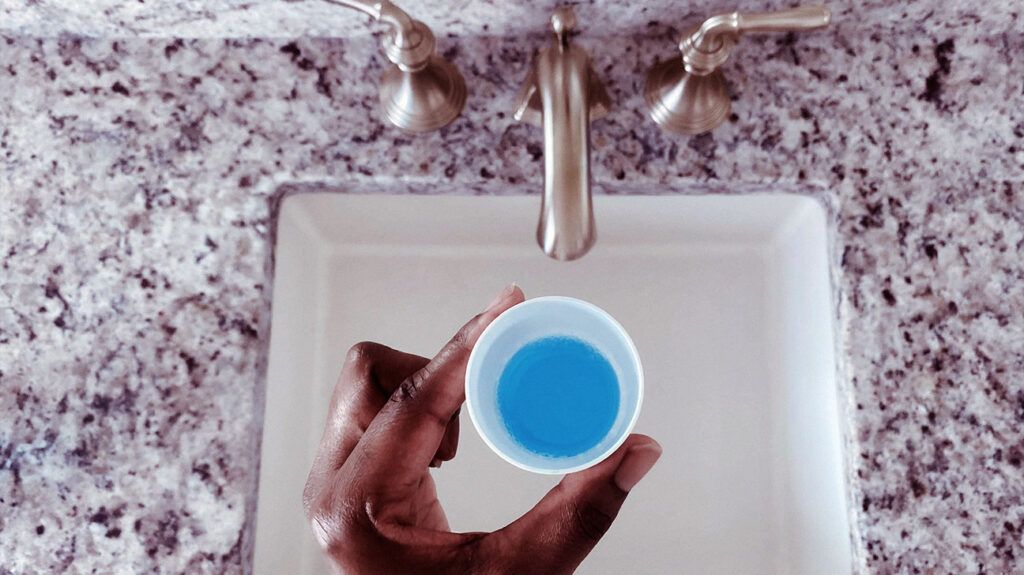Dentists may recommend medicated mouthwashes, ointments, or toothpaste to treat swollen gums. Good oral hygiene can help prevent swollen gums and reduce the duration of symptoms.
Swollen gums often occur due to bacterial infection or irritation of the gum tissue. However, malnutrition, pregnancy, and medication side effects can also cause gum swelling.
Anyone experiencing severe or persistent swollen gums should see a dentist for a full diagnosis and treatment. The treatment options depend on the cause, and the duration of symptoms will vary.
In this article, we cover the causes of swollen gums, treatment options, and home remedies.

Gingivitis is the
Without treatment, gingivitis may develop into a serious infection in the gums, called periodontitis or periodontal disease. The primary symptom of gum disease is red, swollen gums.
- a foul taste in the mouth
- very bad breath that persists after cleaning
- sensitive teeth
- loose teeth or tooth loss
- pain when chewing
- bleeding gums
- receding gums
Mild cases of gingivitis may resolve with improvements to a person’s dental hygiene routine. However, professional teeth cleaning may be necessary in more advanced cases–such as those in which plaque deposits harden into tartar.
Pregnancy does not cause swollen gums in itself, but hormonal changes occurring during pregnancy can alter the mouth’s environment and make infections more likely.
The cause of swollen gums may be simple, such as getting food particles stuck in the teeth. For instance, popcorn may cause hard pieces of kernel to become stuck between the teeth, sometimes lodging in the gums. This can easily cause irritation and swelling in the area.
Most of the time, these symptoms do not last long and will go away once the person brushes and flosses out the food particles.
Some other health issues may cause gum swelling, though they may be less common. Other possible causes of swollen gums include:
- side effects from some medications
- malnutrition
- sensitivity to oral products, such as ingredients in toothpaste or mouthwash
- wearing poorly fitting dentures, crowns, or other dental appliances
In every case, a dentist will review the patient’s other symptoms and medical history to determine the underlying cause.
The duration of swollen gums will depend on the cause and the treatments utilized.
For example, gum swelling due to trapped food, ill-fitting dentures, and medication side effects may resolve quickly once the underlying cause is remedied.
Swollen gums due to gingivitis may resolve in days or weeks with effective dental treatment. Severe cases of swelling in periodontitis may take longer to resolve, and other associated symptoms, such as gum detachment, are nonreversible.
Medical treatment for swollen gums begins with seeing a dentist. Seeing a dentist for regular checkups and cleaning may help identify and prevent oral health issues before they cause problems.
The type of medication or treatment the dentist recommends will depend on the underlying cause. Medical treatments for oral issues may include:
- medicated mouthwashes
- ointments
- toothpastes
Taking steps to treat swollen gums is a key part of any dental treatment.
These measures may help prevent swelling or ease the symptom:
- Brush regularly, at least twice each day or after every meal.
- Floss regularly.
- Use gentle oral products such as toothpaste and mouthwash.
- Avoid sugary drinks, as they can contribute to bacteria buildup in the mouth.
- Avoid tobacco, including smoking or chewing it.
- Avoid alcohol and alcoholic mouthwashes, as the alcohol may dry out and irritate the gums.
- Avoid sharp foods such as chips, seeds, and popcorn, which may get stuck in the teeth and cause pain.
It is important to note that these tips are only supplements to a proper diagnosis and treatment. Swollen or irritated gums typically signal an underlying issue. Ignoring these symptoms may make the issue worse in the long term.
Practicing good oral hygiene and attending regular dentist checkups are the best ways to treat and prevent gum disease.
However, some people claim that alternative home remedies may also help symptoms. Alternative therapies often involve topically applied gels or rinses involving a specific ingredient. There is little high-quality research into many of these therapies, but people may find them beneficial in some instances. Options include:
saltwater rinsesTrusted Source - rinses involving
aloe veraTrusted Source or lemongrass - turmeric gel
Home remedies should not replace medical treatment for swollen gums. It is important to see a doctor for persistent of severe gum swelling and follow all recommended courses of treatment.
Learn more about home remedies for gum disease here.
Although home remedies may temporarily relieve irritating gum swelling, they are not a substitute for diagnosis and treatment from a health professional.
Underlying conditions may lead to serious complications. Anyone experiencing swollen gums should see a dentist for a full diagnosis and treatment.
Swollen gums are a common issue, and in most cases, they are not a cause for concern. However, swollen gums that last for longer than 1–2 days may be a sign of an underlying issue such as gingivitis, periodontitis, or a tooth abscess. If swelling occurs alongside a fever, a person should contact their dentist immediately.
People should not ignore symptoms such as swollen gums, and they should seek help from a dentist if other symptoms appear.


